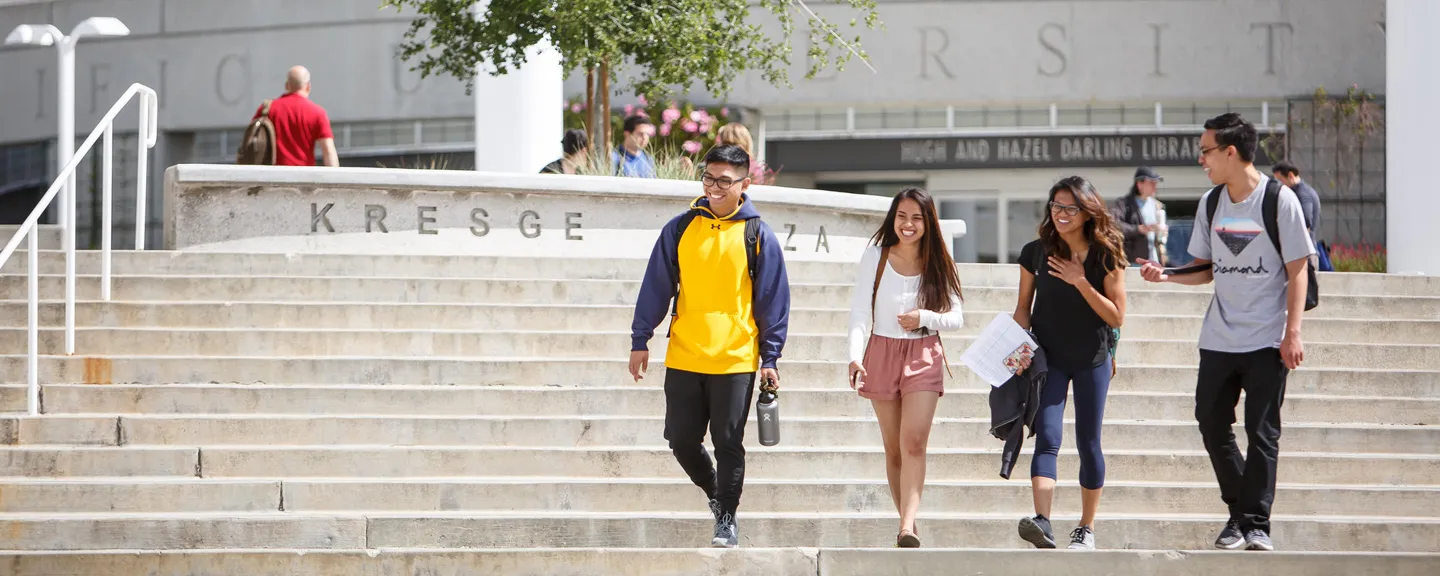- Home
- >
- APU Articles
- >
- News Article
The Biggest Adjustments You’ll Make Going from High School to College
July 17, 2018 | Written By John Montesi

But fear not! There’s a lot to look forward to. Here are a few of the biggest differences between high school and college—and some reasons why you should be excited, rather than afraid.
Starting From the Bottom
Just when you get used to being the oldest and most experienced student on campus as a high school senior, the year comes to an end and you return to the bottom of the food chain. Of course, there might some good-natured ribbing associated with different grade levels, but the reality is that college is an even playing field. Aside from some level-specific classes, it is possible for members of every graduating class to end up in the same classroom. And outside of a handful of occasions, being an underclassman doesn’t come with the overwhelming feeling that it did in high school.
The times you’ll feel like a freshman will be when you can’t find a specific classroom or have trouble figuring out how to get the washing machines to work. Thankfully, your peers with more experience will be happy to show you the ropes.
Life Balance
When you first arrive at college, you’ll likely experience a whirlwind of nerves and excitement. The transition from high school to college often means more than just specialized classes and a new campus—it also means you will be responsible for laundry and meals, telling yourself when to go to bed, and making sure you get to class on time.
All of this happens while you’re making new friends and deciding who you want to be. These are some of the most rewarding aspects of the college experience—you and your peers are learning things about life, yourselves, and each other at the same time—but it can sometimes feel difficult to juggle everything that’s asked of you. That’s why a few pre-planned study habits can go a long way toward making the college transition smoother.
Time Management and Study Skills
The reality is that arriving on campus with the “boring stuff” already planned out makes it much easier to have fun. You might roll your eyes at your parents as they shout advice from the car after moving you into the dorms, but heed their wisdom.
Committing yourself to certain aspects of time management and effective study habits (before you ever set foot in a classroom) can help make the inevitable swings from fun, new student activities to “WE HAVE TO READ 50 PAGES IN TWO DAYS?!” a lot less overwhelming. College isn’t really any harder than high school, it’s just structured differently.
Instead of showing up to every class every day and being in school for an extended chunk of time, college classes typically meet less often and last longer. Because you live near to where you study and attend class, the assumption is that you can spend more time reading, studying, and making friends without wasting time in the carpool lane or scrambling to do homework on a nightly basis.
Sweet, Sweet Freedom
The freedom and self-discovery afforded by the college experience is truly priceless. However, just like the old clichés say, with all that freedom comes a serious dose of responsibility. Sure, you’re free to never do your laundry or go to the library—but that won’t make for a very pleasant (or successful) semester.
If you can find a way to balance the downtime with your scholarly responsibilities, you might even find yourself admitting that school is pretty fun. Especially when study breaks include late-night dining hall dessert runs with your friends.